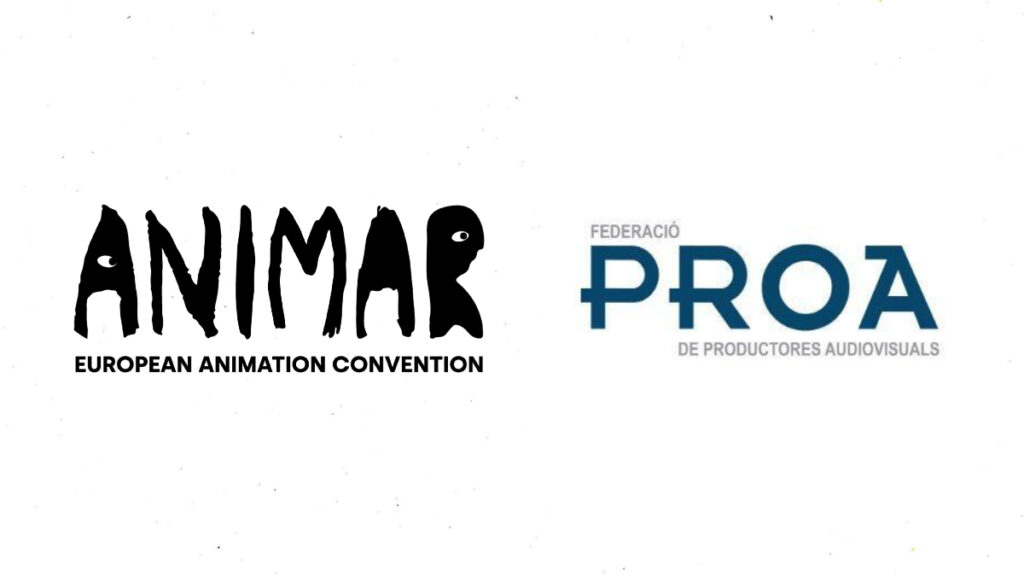
The third edition of Animar_BCN was held in Barcelona, Europe from 26 to 28 November. Gathering over 90 delegates from 60 European organisations representing 24 European countries. This year’s European Animation Convention addressed topics shaping the animation industry, including the impact of artificial intelligence, sustainable animation practices, media regulation and co-production enhancement.
Animar_BCN 2024 brought together leading figures from the animation and media industries, including European Commission DG Connect deputy director and unit audiovisual industry head of and media support programmes Lucia Recalde; BBC children’s and education director Patricia Hidalgo; and ICEC director Edgar Garcia Casellas. Their expertise, alongside that of the producers, distributors, broadcasters, film funds and governmental bodies in attendance, played a pivotal role in shaping discussions on the future of European animation.
As the core component of Animar_BCN, thematic working groups addressed the pressing challenges and opportunities facing the animation industry and offered recommendations to scale up the European animation sector.
Working Groups’ conclusions:
Group 1: Strengthening media regulation
Recognising the immense audience reach of platforms like YouTube and TikTok and the critical need for child protection, the working group on media regulation recommends the application of the Audiovisual Media Services (AVMS) Directive to all services providing access to audiovisual content. Additionally, the group advocates for a reinforced definition of “European works” within the Directive to safeguard intellectual property retention within Europe, thereby supporting the long-term growth of the European ecosystem.
Group 2: Fostering European co-productions in animation
Faced with underfunded children’s programming and a global animation crisis, the group stressed the need for stronger tools and collaboration between funding bodies and broadcasters to support project development. For production, they advocated creating enhanced tax incentives by linking them to the retention of intellectual property (IP) by European companies and to the European relevance of the content, strengthening the competitiveness of the independent sector and avoiding a shift to a mere service industry.
Group 3: Embracing Ethical AI for a Human-Centered European Animation Industry
The European animation industry supports a human-centered approach to integrating artificial intelligence (AI) within their companies. Animation in Europe recommends the development of a Best Practice Guide for the legal, ethical, and sustainable use of trusted AI tools. Alongside this, the group calls for enhanced access to training programs and AI experts to help industry professionals acquire both educational and practical skills, aligning with the sector’s creative and productive goals.
Group 4: Driving Sustainability with Common Green Production Standards
Participants of the sustainability think tank highlighted the urgent need for shared environmental sustainability tools to facilitate co-production across Europe. As part of this commitment, attendees agreed to engage their respective national stakeholders to join an existing international working group dedicated to developing green animation production standards. This collaborative effort aims to establish a unified approach to sustainable animation practices across the continent.
Anima Mundi: The first Academic Study of the European Animation Industry
Following one of the main recommendations of the previous edition, Animation in Europe has teamed-up with a consortium of European universities on Anima Mundi, the first academic, interdisciplinary and multistakeholder project dedicated to the European Animation Industry Ecosystem scheduled from February 2025 to July 2028.
Funded by the European Commission under the Horizon Europe program with €4 million, this project seeks to address challenges in intellectual property, European content dissemination, and cross-borders partnerships.
Animation in Europe (AiE), a central partner in the consortium, will play a major role in bridging the gap between producers and stakeholders. Among its deliverables are the creation of a European Animation Brand, a policymaking dashboard, and toolkits for enhancing IP management and discoverability.
By uniting academic expertise and industry leadership, Anima Mundi reaffirms Europe’s commitment to promoting its cultural heritage and values on the global stage.
The Future of Animar_BCN: What’s next ?
Building on the momentum, in order to give the opportunity to other territories who also deserve to be spotted, Animar_BCN will launch a series of spin-offs consisting of single workshops tackling a specific topic, organized in different places within the E.U.
The first of these Animar workshops will happen in Nova Gorica, Slovenia, in March 2025 within the frame of the city being the European Capital of Culture, in collaboration with CEE Animation. This forum will continue the work on sustainability in animation with a focus on the application in Eastern European territories.
Additionally, Animar will organise two spin-offs during the Annecy Animation Film Festival in 2026 and 2027, within the framework of Anima Mundi’s research, both of them focused on how to foster the distribution and dissemination of European animation films and series across the continent and beyond.
Animar_BCN will continue in future editions as the industry-centered, thoughtful force of the animation sector, expanding its scope and enhancing collaborations between the different stakeholders.
Animar_BCN is an initiative of PROA, the Spanish Federation of Independent Audiovisual Producers, and ProAnimats, the Association of Independent Animation Producers, with the support of ICEC (Catalan Institute of Cultural Enterprises), ICEX Invest in Spain (Spanish Public Trade Agency), Animation in Europe and CEE Animation, and the collaboration of Diboos.
